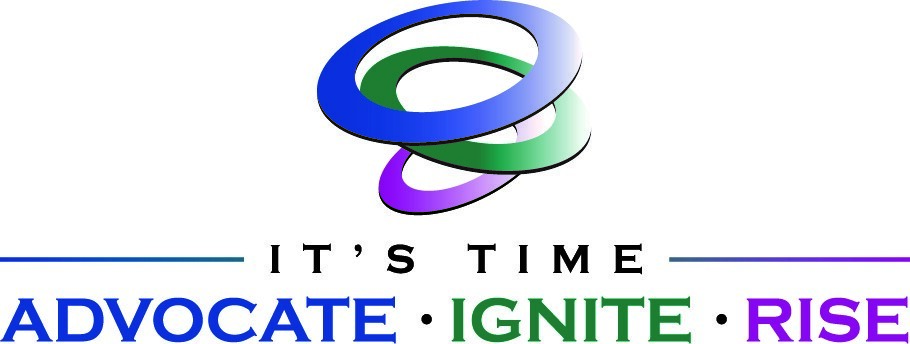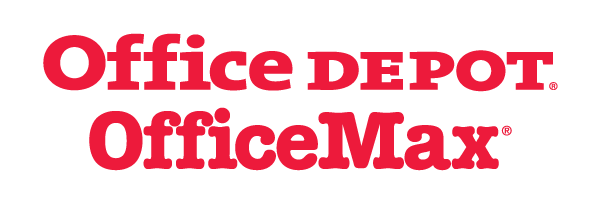 |
| Archive | Subscribe | Printer Friendly | Send to a Friend | www.beautyschools.org |
|
What's Hot

AACS is proud to provide unrivaled programming, networking and educational opportunities. To best serve our beauty educators, and ensure the safety and health of all conference participants, this year’s 2020 CEA & AMP is going virtual. Join us July 11-13, 2020. Click here for more information.
Reopening Guide Ready for when your state approves, AACS has created a Reopening Guide to help your schools and organization proceed with protocols to ensure the safety and health of your staff, instructors, students, and community. In addition to resources, it also includes a state-by-state list of reopening policies. Click on this link to find out more.
Coronavirus Resource Center AACS is here for you with a comprehensive coronavirus resource page that will be updated as new information comes in. Click here for updates from the Centers for Disease Control, World Health Organization, Small Business Administration, U.S. Department of Education, accreditors, distance learning educators and more.
Member Benefits
 Preparing to reopen your school? Office Depot – OfficeMax member can help In addition to safety and health protocols, additional supplies will likely be needed to protect your instructors, staff and students as the learning continues. For a limited time, for AACS members only, cloth masks and face shields are available (supplies are limited).
Masks are available by calling Nicole Gutierrez at: (855) 337-6811 ext. 12673 or Sara Haltom at (855) 337-6811 ext. 12872. Whether working from home or back in your offices, OfficeMax is here to provide AACS members special benefits. Businesses using the Office Depot discount program see significant savings. Take advantage of the program today and you could save thousands of dollars per year! To learn more, click here Especially during this time of the coronavirus pandemic, we have been hosting webinars for members to provide the latest information to help you continue to serve your students and manage your business. If you missed a webinar, recordings are available to members only. Webinars to date are: Navigating Distance Education If you would like the recording, email info@beautyschools.org. More will be available soon. Monitor your inbox for the latest information. Additional FAQs are available regarding:  Prescription RX card benefit GRC News
Federal Legislative Weekly Update May 12, 2020 – House Democrats on Tuesday released the text of a mammoth coronavirus response plan totaling more than $3 trillion, cementing their priorities for the next round of congressional negotiations to deliver more pandemic relief and assistance for a cratering economy. The 1,815-page bill — dubbed the “Health and Economic Recovery Omnibus Emergency Solutions Act“ or “HEROES Act,” H.R. 6800 (116) — would provide states and local governments nearly $1 trillion that could be used to replace drastic revenue shortfalls. It would also provide another round of $1,200 direct payments to Americans. May 12, 2020 – In response to inquiries received by the Department, the ED’s Office for Civil Rights (OCR) issues the following additional guidance to assist postsecondary institutions with meeting their obligations under Federal civil rights laws (Section 504/Title II, Title VI, and Title IX) during this difficult and unprecedented time. OCR will continue to update this document as needed throughout the crisis. May 11, 2020 – The Department is issuing a notice inviting applications (NIA) for new awards for fiscal year (FY) 2020 for the Transition Programs for Students with Intellectual Disabilities into Higher Education (TPSID)—Model Comprehensive Transition and Postsecondary Programs for Students with Intellectual Disabilities Program, Catalog of Federal Domestic Assistance (CFDA) number 84.407A. The purpose of the TPSID program is to support model demonstration programs that promote the successful transition of students with intellectual disabilities into higher education and to enable institutions of higher education (IHEs), or consortia of IHEs, to create or expand high-quality, inclusive model comprehensive transition and postsecondary programs for students with intellectual disabilities. May 7, 2020 – The Department posted an electronic announcement notifying schools that the closeout deadline for the 2018–19 Direct Loan Program Year is Friday, July 31, 2020. This is the last processing day before the end of the program year. All school data must be received and accepted by this date to be included in a school's final Ending Cash Balance for the year. May 6, 2020 – U.S. Secretary of Education Betsy DeVos took historic action to strengthen Title IX protections for survivors of sexual misconduct and to restore due process in campus proceedings to ensure all students can pursue an education free from sex discrimination. For the first time ever, the Department's Title IX regulations define sexual harassment, including sexual assault, as unlawful sex discrimination. The new Title IX regulation holds schools accountable for failure to respond equitably and promptly to sexual misconduct incidents and ensures a more reliable adjudication process that is fair to all students. The new regulation comes after years of wide-ranging research, careful deliberation, and critical input from survivors, advocates, falsely accused students, school administrators, Title IX coordinators, and the American people, including over 124,000 public comments. The Department provided additional information about the upcoming deadline for HEERF 30-day Fund Report. The Certification and Agreement directs each institution applying for HEERF funds to comply with Section 18004(e) of the CARES Act and submit an initial report (the “30-day Fund Report”) to the Secretary thirty (30) days from the date of the institution’s Certification and Agreement to the Department. The Department will provide instructions for providing the required information to the Secretary in the near future. In the meantime, each HEERF participating institution must post the information listed below on the institution’s primary website. The Department would like to receive the most current information from the date when the institution received its allocation for emergency financial aid grants to students, and the institution should have received its allocation within a few days after submitting the Certification and Agreement. Accordingly, the following information must appear in a format and location that is easily accessible to the public 30 days after the date when the institution received its allocation under 18004(a)(1) and updated every 45 days thereafter: 1) An acknowledgement that the institution signed and returned to the Department the Certification and Agreement and the assurance that the institution has used, or intends to use, no less than 50 percent of the funds received under Section 18004(a)(1) of the CARES Act to provide Emergency Financial Aid Grants to students.
H.R. 6756 – To modify the eligibility standards applicable to low-income college students under the Food and Nutrition Act of 2008 during COVID-19 public health emergency.
H.R. 6744 – To provide tax credits to low to moderate income individuals for certain computer and education costs; to direct the Federal Communications Commission to modify the requirements for the Lifeline program to provide increased support for broadband internet access service; and for other purposes.
H.Res.959 – Recognizing the roles and contributions of the teachers of the United States in building and enhancing the civic, cultural, and economic well-being of the United States. H.R.6720 – To provide student loan forgiveness to health care workers who are on the front line in response to COVID-19. H.R. 6699 – To establish a commission to determine essential employment during the COVID-19 crisis period and provide loan repayment and education credit to workers employed in such essential employment during such crisis, and for other purposes. S. 3678 – A bill to amend title 38, United States Code, to provide for payment of work-study allowances during a public health emergency relating to COVID-19 and for allowances to veterans enrolled in educational institutions closed for emergency situations, and for other purposes. a. Status: Referred to Senate Veterans’ Affairs Committee, 5/11/20 S. 3659 – A bill to provide State and local workforce and career and technical education systems the support to respond to the COVID-19 national emergency.
S.3604 – Transparency and Oversight of COVID-19 Small Business Assistance Act
State Update
State legislative activity is resuming in many states. The second full week of May finds 20 state legislatures actively meeting, which is an increase of seven legislatures since last week. AACS also expects the legislatures in Colorado, Iowa and Kansas to resume their 2020 legislative sessions before the end of May. As legislative activity rebounds from COVID-19 disruptions, AACS will continue keep you apprised of the latest developments of interest to member schools. Professional Beauty Federation of California Sues Governor The Professional Beauty Federation of California (PBFC) filed a lawsuit against California Governor Gavin Newsom to compel him to reconsider his "months, not weeks" shutdown order for California beauty salons, barbershops, and beauty schools. The complaint was filed Tuesday at the United States District Court in Los Angeles, CA. The complaint introduction states, “more than two months have passed since Governor Newsom proclaimed a state of emergency in California, and throughout that time, he and others in his administration have vaguely and arbitrarily classified licensed barbering and cosmetology professionals as ‘non-essential,’ criminalizing the jobs these 500,000 plus state-licensed professionals perform in every community, large and small, throughout California. Last week, Defendants began threatening to revoke Plaintiffs’ licenses, which authorize them to safely serve the public’s personal grooming and beauty needs, and embody their ability to earn a living. If allowed to stand, Defendants’ arbitrary orders will continue to violate Plaintiffs’ fundamental rights, inflicting irreversible financial and personal harm to more than 500,000 licensed beauty professionals in California….Plaintiffs hereby request that this Court provide narrow but appropriate relief to ensure the Governor has adequate latitude to address the COVID emergency, while also respecting Plaintiffs’ fundamental rights guaranteed by the constitutions of the United States and the State of California.” PBFC President Ted D. Nelson said in a press release last week, "While our industry stood in solidarity with Governor Newsom’s original order to ‘flatten the contagion curve’ of the COVID19 virus to not overwhelm our healthcare providers, we believe our state has met that noble goal. A shutdown of our salons and beauty schools cannot extend additional ‘months not weeks’, as the Governor announced on April 28, without devastating consequences to the livelihood and businesses of tens of thousands of California citizens. Nor do we believe an extended lockdown of our salons is necessary to continue to combat the Coronavirus.” The Center for American Liberty is representing the PBFC in their case against Governor Newsom. According to Politico, the Center is also representing other groups that have recently filed high-profile lawsuits against Newsom, including those seeking to allow religious activities at churches and reopen Orange County's beaches. PBFC was established in 1999 to give a unified beauty industry voice in Sacramento and with the mission of raising the professionalism of beauty and barbering services in the Golden State. The Federation’s members represent every sector of the beauty industry, including salon professionals, independent and chain salon owners, and beauty schools and their students. Click here for additional information about the lawsuit. Salons and barbershops serving the African American community have separately called for Governor Newsom and other politicians to allow them to reopen. According to a California Black Business article, the Black Small Business Association of California (BSBA) sent letters to Sacramento Mayor Darryl Steinberg and Gov. Gavin Newsom urging them to consider allowing barbers and cosmetologists to safely reopen. “While we understand the need to prioritize public health and safety during this unprecedented crisis, the economic devastation of this moment cannot be overstated,” the letter read. “This loss of income is compounded by the limits of California’s safety-net services and has left too many barbers and cosmetologists without assistance during this difficult time.”
Arizona’s Legislature Divided on Adjournment Arizona’s Senate voted Friday 24 to 6 to adjourn for the year. But according to media reports, the House is not ready to go home. Speaker Rusty Bowers said that the House will meet this week to discuss what the Senate has done and decide what to do next. Therefore, the Senate is in recess awaiting a House response as the state constitution bars either chamber from adjourning for more than three days without the consent of the other. Senate President Karen Fann (R) has indicated that her chamber would be willing to consider noncontroversial measure dealing with COVID-19 and the economic fallout of the pandemic. She also promised that there will be at least one special legislative session to provide business owners who comply with health guidelines some protection from COVID-19-related lawsuits. The Senate adjournment resolution may leave HB 2740 pending in the Senate chamber. As previously reported, the bill reduces the course of instruction for barbering from 1,500 to 1,000 hours; allows for pre-graduation testing; provides for out-of-state licensed professionals to provide services for up to two weeks to “persons who are attending an athletic, charitable, artistic or social event” in Arizona, and; corrects a statutory oversight by allowing hairstylists to remove superfluous hair from the neck. Of interest to schools, the bill would: allow schools to offer both barbering and cosmetology programs if they have appropriately licensed instructors for each; allow students to provide off-campus services at a school sponsored event, and; permit schools to offer “similar” programs – for example, massage therapy – not regulated by the state’s cosmetology board. If you are interested in viewing the text of HB 2740 or bills from your state, please click here to visit AACS’ Bill Tracking Portal. Please do not hesitate to contact Brian Newman at bnewman@abingdonstrategies.com or by phone at 202-491-5254 with comments or questions.
COVID-19 Resources AACS Guide to Reopening AACS Coronavirus Resource Center State and Local Government Responses to Covid-19 National Governors Association Coronavirus Updates COVID-19 State Legislation – National Conference of State Legislatures Member Events

It is a Game Night! Bring your own cocktail, hosted by AACS board member Kim McIntosh of Crave Beauty Academy, and get ready for some rousing rounds of trivia. Date: May 27 |









